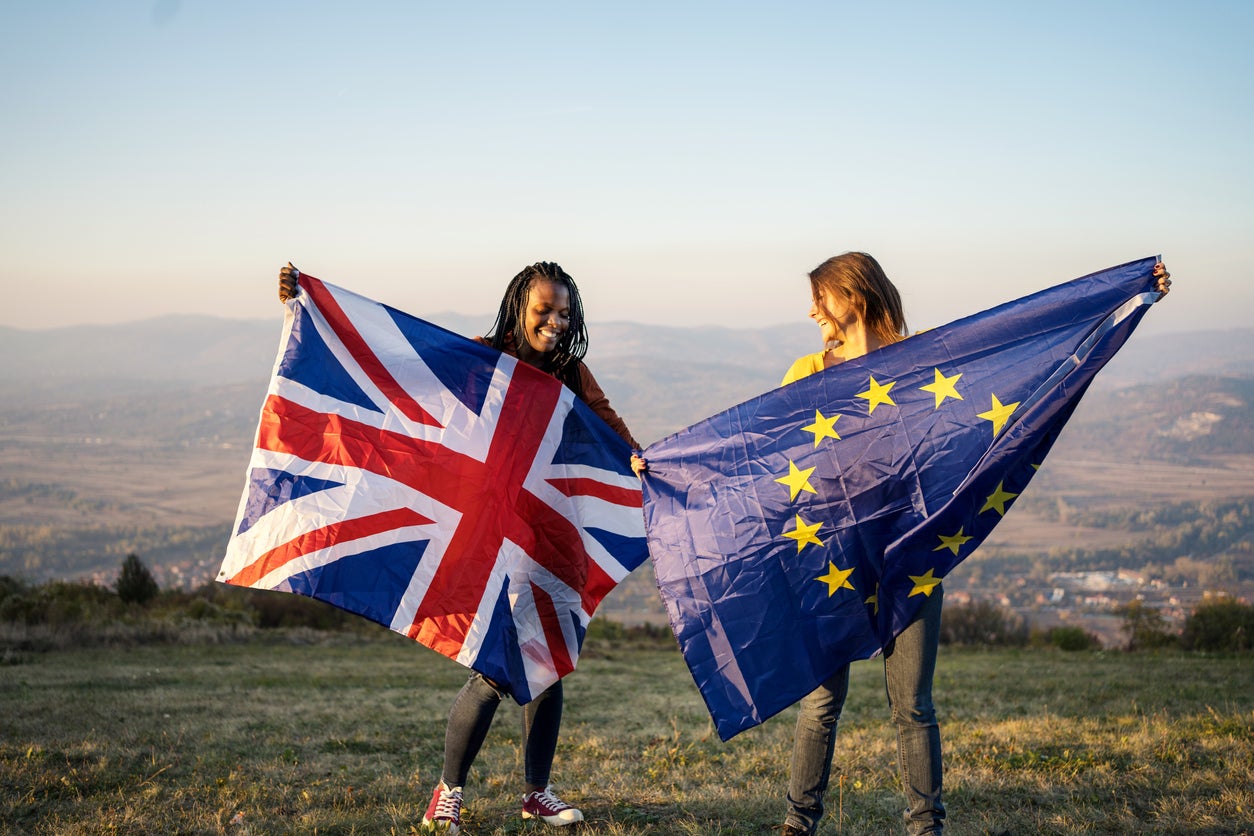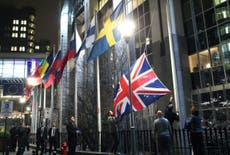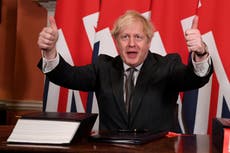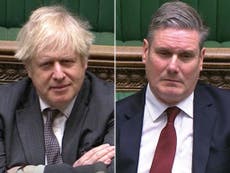The Independent's journalism is supported by our readers. When you purchase through links on our site, we may earn commission.
After 1945, Europe united in respect and understanding – Brexit risks undoing all that we have achieved together
We all have a duty to lay our differences over Brexit aside, writes Anthony Seldon, but unless the concerns of young people are listened to and addressed, there will be no peace and no resolution


Your support helps us to tell the story
From reproductive rights to climate change to Big Tech, The Independent is on the ground when the story is developing. Whether it's investigating the financials of Elon Musk's pro-Trump PAC or producing our latest documentary, 'The A Word', which shines a light on the American women fighting for reproductive rights, we know how important it is to parse out the facts from the messaging.
At such a critical moment in US history, we need reporters on the ground. Your donation allows us to keep sending journalists to speak to both sides of the story.
The Independent is trusted by Americans across the entire political spectrum. And unlike many other quality news outlets, we choose not to lock Americans out of our reporting and analysis with paywalls. We believe quality journalism should be available to everyone, paid for by those who can afford it.
Your support makes all the difference.On 23 June 2016, I was walking through the silent Vosges mountains between Colmar and Verdun, trying to negotiate an unbeaten track between Switzerland and the English Channel. It felt a million miles away from the clamour in London and across the UK that day. As author of a book on the Cameron premiership, I was in regular touch with No 10, and the latest tom-toms were sounding quiet optimism: “Polling looks good.”
There was a symmetry between the walk and the national referendum that day. Some years earlier, when researching a book on the Great War, I had come across a letter written by a soldier, Lieutenant AD Gillespie, to his former headmaster at Winchester College. Shattered by the loss of his brother the previous year, the young man wrote that if he was to survive the war, he wanted to see, as a memorial to the terrible devastation and death, a 500-mile walk constructed along the line of the old Western Front. “Every man, woman and child in western Europe must walk along it,” he wrote, “so that they might think and learn what war means from the silent witnesses on either side.”
His letter, full of optimism for a more connected world that I recognise in the young today, gave me an idea. Now, thanks to the tireless work of people on both sides of the Channel, his vision is becoming a reality 100 years on: the Western Front Way. Michael Morpurgo has been a keen supporter, as has Countryfile’s Tom Heap, a great-nephew of the soldier.
The vision of a Europe united in respect and understanding, having learnt the lessons of war, lasted fewer than 20 years before being shattered in the still greater loss of life in the Second World War. But it finally woke up Europeans to realise that the way forward was not pulling up the drawbridges again after 1945, and retreating into feverish visions of nationalism and sovereignty, but by building enduring bonds and bridges between countries.
Britain had done well out of the EU. It went into it in 1973 with a hopelessly misaligned, struggling economy: it became the fifth biggest economy in the world. It entered with the slowest growth in the G7: it left the quickest growing economy. It went in as the sick man of Europe and a laughing stock internationally: it became respected across the world, and regularly voted the number one soft power. London was run down and tired in 1973: it became the pre-eminent global city.
True, some of these changes would have happened irrespective of membership of the EU, but it’s nigh impossible to argue that the EU prevented this transformation of Britain.
These were some of the arguments that I had expected the Remain side to lead on in the referendum campaign. It was right to have called it – imagine the bickering that would have continued had Cameron not gone for it. Now, at last, after years of prime ministers bowing to the Eurosceptic press and refusing to champion the EU, was the opportunity for the positive side to be stated and understood, loudly and clearly.
So I could not believe the naive and rebarbative way that the Remain team was choosing to conduct the campaign. “Stop demonising the other side,” I would text senior figures in No 10. “Yes, we hear you,” they replied. But they didn’t. “Stop exaggerating the downsides: offer a positive vision.” “Yes, we hear you,” the message would come back. But they didn’t hear.
The Remain side was outgunned and outsmarted by the Brexit machine. It lost the campaign, but it didn’t lose the argument.
When researching the Cameron book, I had travelled to Brussels to talk to the doyen of our EU officials, Sir Ivan Rogers. “If Britain votes to leave,” he told me, “it will take years and years of negotiation.” As I left him outside the hotel where we met, he shouted down the street after me. It reminded me of the drunk being taken away in a wagon from Rorke’s Drift in Zulu, shouting out through the swirling smoke, “you are all going to die”. “Years and years.” Rogers’ voice reverberated through the crisp, EU-purified morning air.
Indeed, it took years and years to get to Boris Johnson’s Christmas deal, longer than the entire length of the First World War that saw for Gillespie and 20 million others. Years in which Britain has largely stood still, not dealing properly with its deep-seated problems, social care, educational disadvantage, our deteriorating environment, regional inequalities, the housing shortage – and preparing for an epidemic. It has been an extraordinary governmental failure. A political rather than an official one, though it has been officials who have been trashed, demonised, and sacked.
We enter a new relationship with the EU today. If Brexit is to work, the young will have to be won over. All my working life, as a school teacher, and running a university for these last five years, I have been with young people, and they have been overwhelmingly pro EU. They have no problem at all in identifying as English, or Welsh/Scottish/Irish, as European, and equally as global citizens. Not for them the fantasies of sovereignty, but the reality of global concerns and multiple identities.
The 18-24 year olds have become more pro EU since 2016. In the referendum, they voted over 70 per cent Remain, whereas only 40 per cent of over 65s voted Remain. By 2018, according to election supremo Sir John Curtice, 82 per cent of 18-24 year olds now support remaining within the EU. What does Brexit offer them? They want affordable homes. Will Brexit give it to them? They want jobs. The highly respected IFS estimated in October growth to be 2.1 per cent lower in 2021 than if Britain remained in the EU – ie fewer jobs. They want to see a more tolerant, creative and open society, but fear the voices of populism and white identity will be emboldened by Brexit.
Covid-19 has taught us many things, including that the modern world has no national borders. Science is global, knowledge is global, large corporations are global, and truth is global. Rigid sovereignty, that so excites the ardent Brexiteers, died at the end of the second millennium, even before 9/11. “Taking back control”, which may prove to be the biggest disappointment since records of political promises began, is not what excites the young anyway.
But today is the very last moment for recrimination. I want to see Britain come together as a nation and be optimistic about what lies ahead. While the benefits of leaving may be uncertain compared to the certain gains of membership, we cannot turn back the clock. This is not a repeat of 1925, when Britain went back on the gold standard, another self-inflicted error engineered by politicians. That decision was reversed in 1931. There can be no going back this time, not for years and years.
So I believe we all have a duty to lay our Brexit differences aside, to get behind making Britain a vital force for good in the world. But unless the concerns of young people are listened to and addressed, there will be no peace and no resolution.
The young soldier Gillespie never did live to enact his vision; he was killed in action just a few weeks later. We need to honour the concerns of the youth of today better.
Anthony Seldon’s new book, ‘Impossible Office: the Prime Minister since 1721’ is published in April





Join our commenting forum
Join thought-provoking conversations, follow other Independent readers and see their replies
Comments